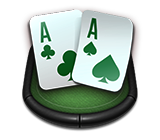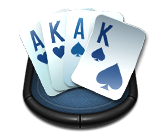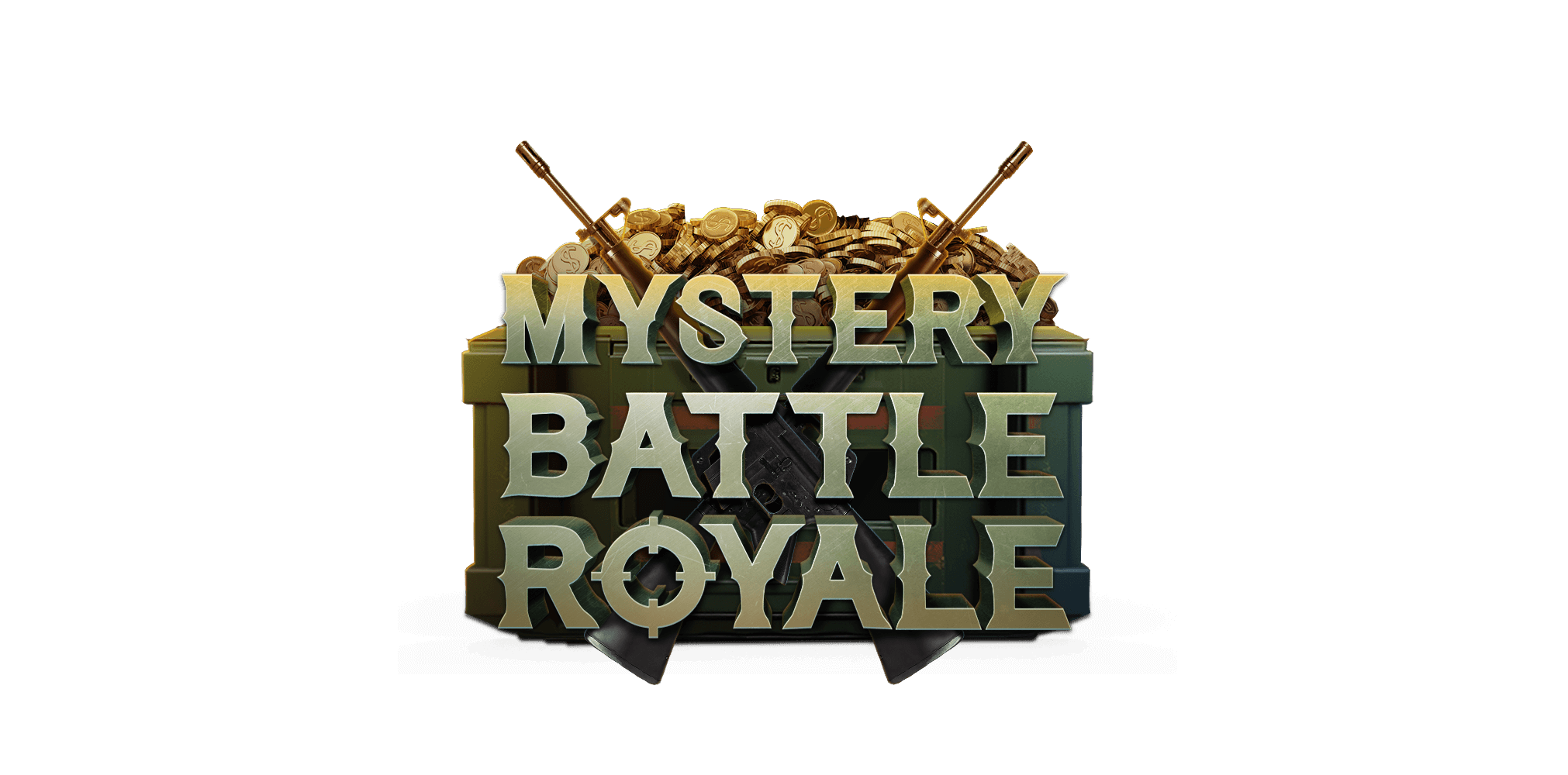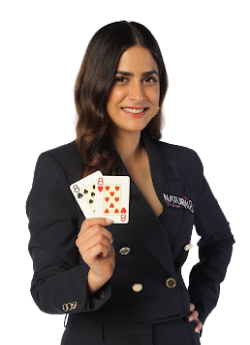-
Features
-
Final Table Features
Online Poker Final Table Features
Congratulations on making it to the Final Table! To make things more interesting, you can now Switch Seats, dabble in Deal Making, or make use of the Chess Clock. Welcome to tournament final tables like you've never experienced them before!
When Can I Use These Final Table Features?
You must be in the in-the-money (ITM) stage and have reached the final table.
Final Table Features do not apply to freerolls and satellites
How To Switch Seats
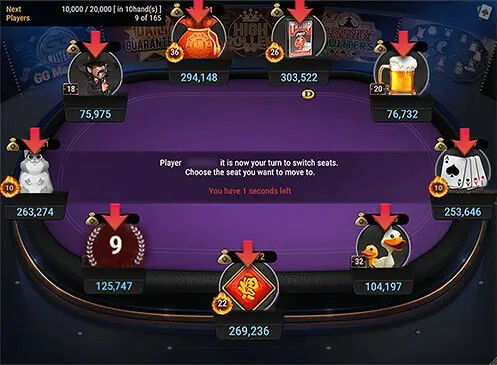
You Can Choose to Switch Seats Before the Final Table Starts
When you select a seat, you will automatically switch with the player seated there
You will have 10 seconds to select your seat
If a seat has already been selected, it can still be chosen by another player later
Seat Selection Order is Determined by Your Chip Count
The player with the smallest chip stack chooses first, followed by the second smallest chip stack, and so on
The chip leader will be the last to switch seats
If chip counts are the same, the player who registered into the tournament first will choose last
All About Deal Making
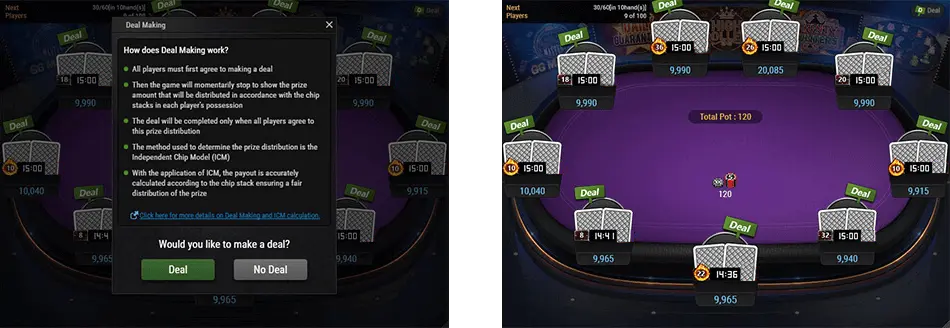
What is Deal Making?
As the name suggests, Deal Making is when players make a deal in regards to how the remaining prize money will be distributed.
How Does Deal Making Work?
All players agree to make a deal.
The game pauses to show how the prize amount will be distributed.
The method used to determine this is the Independent Chip Model (ICM), and is in accordance with the chip stacks in each player’s possession.
The deal will be completed only if all players agree to this prize distribution.
After the deal is made, players' accounts will be credited.
Normal gameplay resumes to determine final rankings (for Tournament Points purposes).
When is Deal Making Available?
On tournament Final Tables
After seat selection has been completed
How to Agree to Deal Making
Look for the "Deal" or "Deal Making" button in the top right corner of the Final Table
Selecting it brings up the agreement pop-up
Select "Deal"
If you wish to cancel, just click on the button again and select "Cancel Deal Reservation"
Blind Intervals, Chess Clock & Blind Rollback
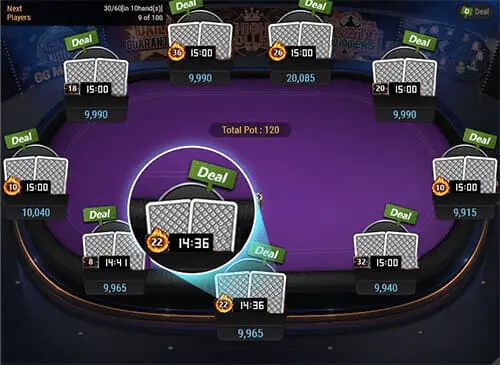
Blind Intervals
Once Final Table Features are activated, the blind levels will change based on hand counts (number of hands dealt) instead of time. The number of hand counts per blinds may differ for each tournament.
What is a Chess Clock?
A chess clock is a set amount of time to act given to each player.
How Does it Work?
During pre-flop, there is a 30 second action time. However, you can click on the “time extension" button to use any remaining Chess Clock time.
After the flop, you will use your remaining Chess Clock time by default (no need to actively select this option).
Your Chess Clock will count down whenever the action is on you.
Once your Chess Clock expires, you will only get 5 seconds per turn to make a decision.
How Much Time Do I Get on My Chess Clock?
Your Chess Clock time will be determined by combining your remaining tournament time bank with the average value of Tournament M.
The average value of Tournament M is calculated as follows: (Chip Total of all players) / (Small Blind + Big Blind + Total Ante) / Number of Players.
The maximum and minimum Chess Clock values are 15 minutes and 1 minute respectively.
Blind Rollback
In certain tournaments with 100 entries or more, the blind level may be automatically amended once the final table is reached. This is to ensure a better final table gameplay experience for remaining players.
If the average player stack in Big Blinds (BB) stands at less than 40 when the final table is made, the blind level will be rolled back to ensure that the average stack is at least 40 BB for the first hand played. The blinds may roll back multiple levels if required. For example, if the average stack stood at 15 BB at the start of a qualifying tournament’s final table, the blinds might need to roll back three or four levels.
If the average player stack stands at more than 100 BB, the blind levels may be rolled forward to ensure that the average stack is no more than 100 BB.
Terms & Conditions
- Players must be aged 18 and above to participate.
- This game uses 1 deck of 52 cards and the deck is shuffled after each hand.
- Natural8 India reserves the right to add or suspend Final Table Features at any time.
- Natural8 India reserves the right to investigate any players suspected of fraudulent activity, and take any necessary action. In the event of multi-accounting, bonus hunting, or foul play, Natural8 India reserves the right to forfeit any prize amounts that have been paid along with any remaining cash balances, without prior notice.
- Natural8 India reserves the right to cancel or modify this offer at any time without prior notice, and at its sole and absolute discretion.
- This promotion is subject to the terms and conditions of the Natural8 India website.
- Natural8 India is an advocate of safer gaming. If you feel you might have a problem, do seek further advice or counselling. Please also refer to our Responsible Gaming page.



